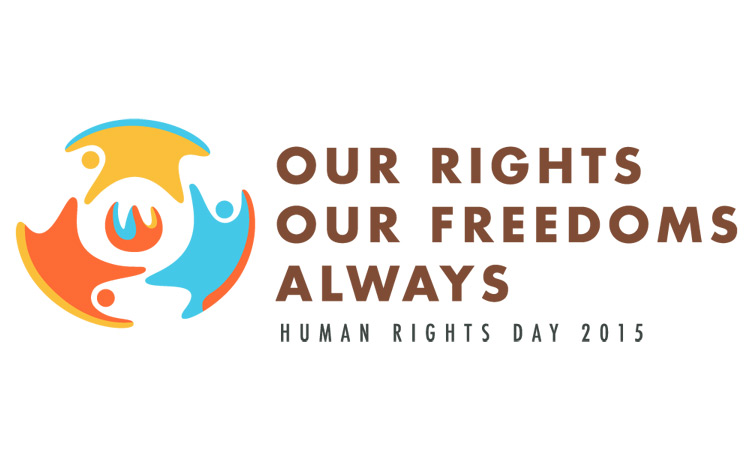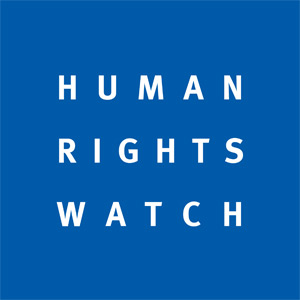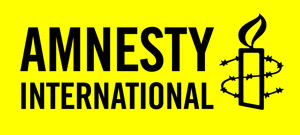 “Our Rights. Our Freedoms. Always.” These powerful words capture freedom as the very definition of dignity. They also highlight the theme of this year’s Human Rights Day, recognized internationally each year on this day to commemorate the day on which in 1948 the United Nations General Assembly adopted the Universal Declaration of Human Rights:
“Our Rights. Our Freedoms. Always.” These powerful words capture freedom as the very definition of dignity. They also highlight the theme of this year’s Human Rights Day, recognized internationally each year on this day to commemorate the day on which in 1948 the United Nations General Assembly adopted the Universal Declaration of Human Rights:
“All human beings are born free and equal in dignity and rights. They are endowed with reason and conscience and should act towards one another in a spirit of brotherhood.”
Article 1, United Nations Universal Declaration of Human Rights
This year’s Human Rights Day will be marked at the Franklin D. Roosevelt Four Freedoms Park in New York, which celebrates the four freedoms pronounced by President Roosevelt in his January 6, 1941, State of the Union speech.
Roosevelt’s vision for a better future in response to the dark days of the Second World War centered on freedom of speech, freedom of religion, freedom from want and freedom from fear.
Human dignity and worth
This United Nation notes that this year’s Human Rights Day highlights freedom by recalling the four freedoms that underlie the Universal Declaration of Human Rights and two major human rights covenants. This year’s Human Rights Day is also “devoted to the launch of a year-long campaign for the 50th anniversary of the two International Covenants on Human Rights: the International Covenant on Economic, Social and Cultural Rights and the International Covenant on Civil and Political Rights,” adopted by the United Nations General Assembly on December 16, 1966.
In addition, “the two Covenants, together with the Universal Declaration of Human Rights, form the International Bill of Human Rights, setting out the civil, political, cultural, economic, and social rights that are the birthright of all human beings.” The United Nations states that the International Bill of Human Rights “represents a veritable Magna Carta marking mankind’s arrival at a vital phase: the conscious acquisition of human dignity and worth.”
Today’s fights for freedom
 The grim days of the Second World War may be gone, but today the fights for freedom and dignity encompass a whole new set of issues and challenges, and a number of agencies have arisen to address them. Human Rights Watch, a nonprofit, nongovernmental human rights organization, works to publish “more than 100 reports and briefings on human rights conditions in some 90 countries, generating extensive coverage in local and international media.
The grim days of the Second World War may be gone, but today the fights for freedom and dignity encompass a whole new set of issues and challenges, and a number of agencies have arisen to address them. Human Rights Watch, a nonprofit, nongovernmental human rights organization, works to publish “more than 100 reports and briefings on human rights conditions in some 90 countries, generating extensive coverage in local and international media.
With the leverage this brings, Human Rights Watch meets with governments, the United Nations, regional groups like the African Union and the European Union, financial institutions, and corporations to press for changes in policy and practice that promote human rights and justice around the world.”
 Amnesty International, a nonprofit, nongovernmental human rights organization with over 7 million members and supporters around the world, also works “to conduct research and generate action to prevent and end grave abuses of human rights, and to demand justice for those whose rights have been violated.” In Human Rights Facts & Figures for 2014 it notes that it recorded and investigated human rights abuses in 160 countries and territories worldwide, and identified the following human rights issues:
Amnesty International, a nonprofit, nongovernmental human rights organization with over 7 million members and supporters around the world, also works “to conduct research and generate action to prevent and end grave abuses of human rights, and to demand justice for those whose rights have been violated.” In Human Rights Facts & Figures for 2014 it notes that it recorded and investigated human rights abuses in 160 countries and territories worldwide, and identified the following human rights issues:
- War crimes or other violations of the “laws of war” were carried out in at least 18 countries
- Armed groups committed abuses in at least 35 countries
- More than 3,400 people are believed to have drowned in the Mediterranean Sea trying to reach Europe. Of the 4 million refugees who have fled the conflict in Syria, 95% were being hosted in neighboring countries
- Almost three-quarters of governments (119 out of 160) arbitrarily restricted freedom of expression. There were crackdowns on press freedom in many countries, with newspapers being forcibly closed and journalists threatened
- More than a third of governments (62 out of 160) locked up prisoners of conscience–people who were simply exercising their rights and freedoms
- 58% of countries (93 out of 160) conducted unfair trials
- 82% (131 out of 160) of countries tortured or otherwise ill-treated people
- 28 countries around the world have laws which completely ban abortion even in cases where a woman’s life or health is in danger and in cases of rape
- According to the International Lesbian, Gay, Bisexual, Trans and Intersex Association, 78 countries have laws in effect that are used to criminalize consensual sexual relationships between adults of the same sex
Want to get involved?
If you would like to join the fight for human rights, here are some ways to get started:
- Take action with Amnesty International by signing your name in support of one of their many online petitions
- Consider a donation to either Amnesty International or Human Rights Watch
- Order a free United for Human Rights Info Kit and start your own group to initiate activities and forward the cause of human rights
- Report human rights abuses that you see
When will universal rights become reality?
The United Nations notes that “Fifty years on, many people are still unaware of the existence of the International Bill of Human Rights and many countries around the world still have much to do to build political institutions, judicial systems, and economies that allow ordinary people to live with dignity.
“The growth of hate speech against religious and racial minorities, the justification of rights violations in the name of combatting terrorism, the clawing back of economic and social rights in the name of economic crises or security, and the failure to respect the right to privacy in the digital age, show the relevance of the two Covenants and the need to respect them.”
Today, on Human Rights Day, let’s all note that there’s much important work remaining to be done to ensure universal human rights for a better, safer and more unified world for ourselves and our future generations.
To find out about Rose’s thoughts on how to live a happier life, click here


